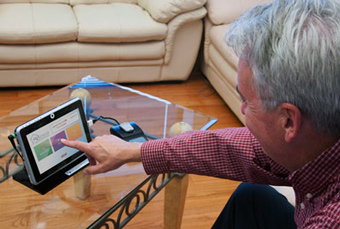expanding great lakes neurotechnologies widens reach to australia

Great Lakes NeuroTechnologies (GLNT), which creates biomedical technologies, received Therapeutic Goods Administration (TGA) approval to market its Kinesia technology in Australia. The technology is used to assess and find treatments for Parkinson’s disease.
“The Kinesia system is used for quantitative assessment of Parkinson’s motor systems, which include tremors, bradykinesia, or slow motor movements, and rigidity,” explains Joe Giuffrida, president and principal investigator at GLNT. Furthermore, Parkinson’s medications can cause side effects, including involuntary movements.
Kinesia hooks patients up to motion sensors that are in turn hooked into a computer. It has applications for both the doctor’s office and at home. Doctors can then monitor symptoms of the disease and patients’ responses to different medications and doses. The technology has multiple uses. “For patient care, doctors can assess the symptoms,” says Giuffrida. “Pharmaceutical companies developing new drugs can measure efficacy. And it can be used for deep brain stimulation.”
GLNT received FDA clearance to market in 2006, and permission to market in Europe a couple of years ago, says Giuffrida. “This continues our international growth,” he says. One in 350 Australians has Parkinson’s. Kinesia features a system for home users, which will help patients in the country’s remote locations. “Australia is an important place for us to come next.”
GLNT grew from 15 to 23 employees last year, and is hiring three additional people now.
Source: Joe Giuffrida
Writer: Karin Connelly

